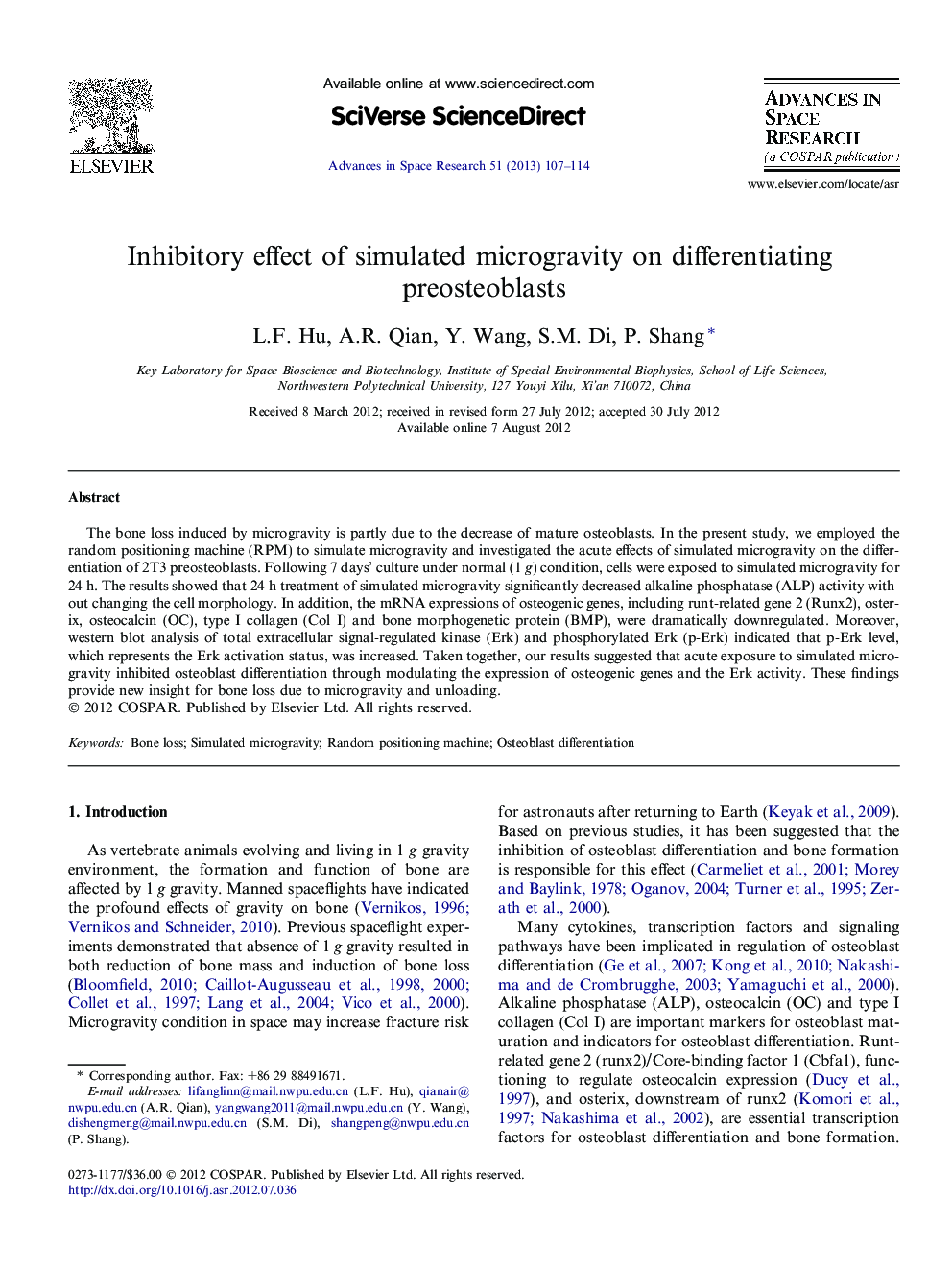| Article ID | Journal | Published Year | Pages | File Type |
|---|---|---|---|---|
| 1765057 | Advances in Space Research | 2013 | 8 Pages |
The bone loss induced by microgravity is partly due to the decrease of mature osteoblasts. In the present study, we employed the random positioning machine (RPM) to simulate microgravity and investigated the acute effects of simulated microgravity on the differentiation of 2T3 preosteoblasts. Following 7 days’ culture under normal (1 g) condition, cells were exposed to simulated microgravity for 24 h. The results showed that 24 h treatment of simulated microgravity significantly decreased alkaline phosphatase (ALP) activity without changing the cell morphology. In addition, the mRNA expressions of osteogenic genes, including runt-related gene 2 (Runx2), osterix, osteocalcin (OC), type I collagen (Col I) and bone morphogenetic protein (BMP), were dramatically downregulated. Moreover, western blot analysis of total extracellular signal-regulated kinase (Erk) and phosphorylated Erk (p-Erk) indicated that p-Erk level, which represents the Erk activation status, was increased. Taken together, our results suggested that acute exposure to simulated microgravity inhibited osteoblast differentiation through modulating the expression of osteogenic genes and the Erk activity. These findings provide new insight for bone loss due to microgravity and unloading.
► Acute effect of simulated microgravity on osteogenic differentiation was studied. ► 24 h acute treatment of simulated microgravity inhibits osteoblast differentiation. ► The inhibitory effect is due to the decrease expression of osteogenic genes. ► We find that Erk pathway may play a negative role in the effect.
